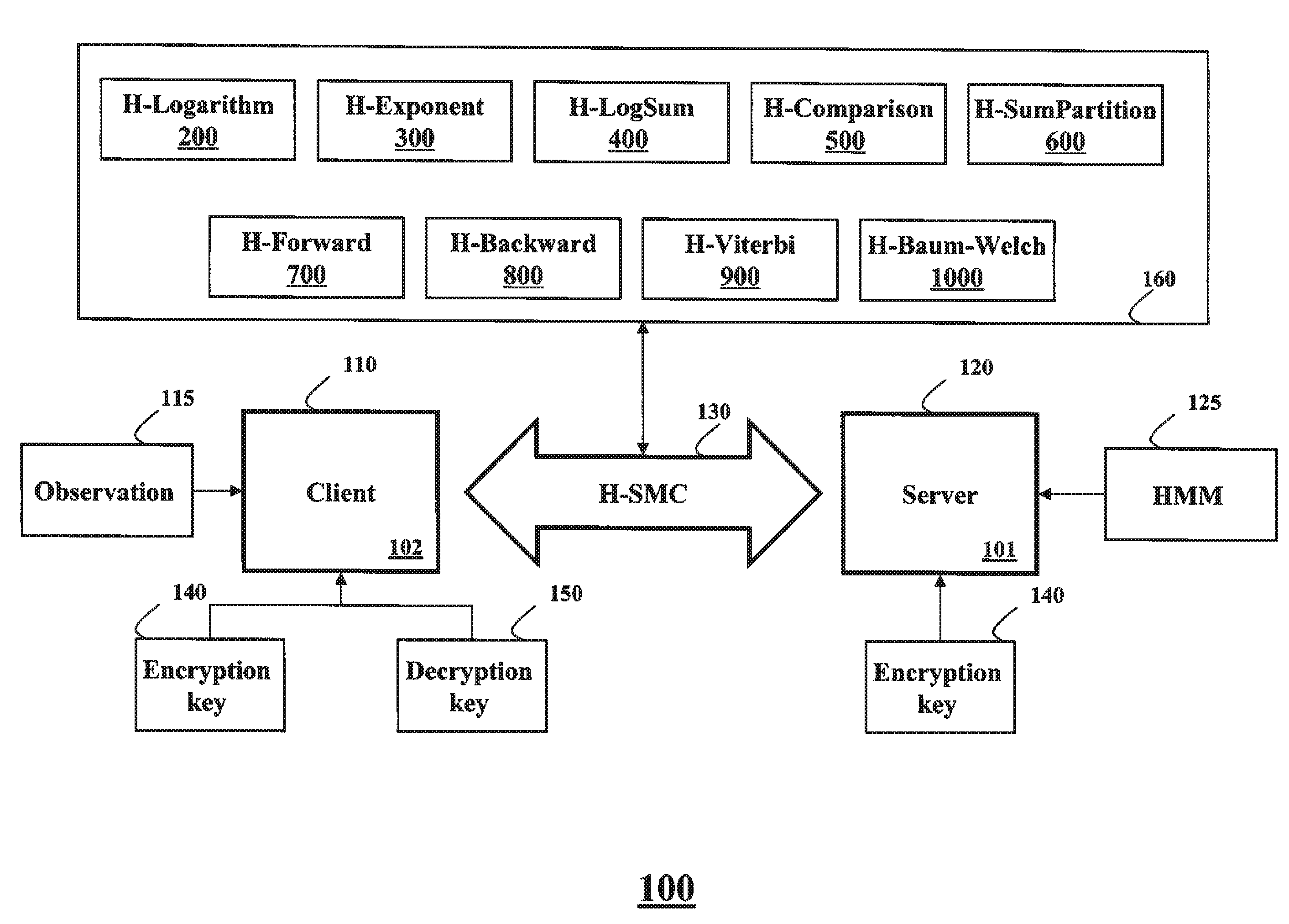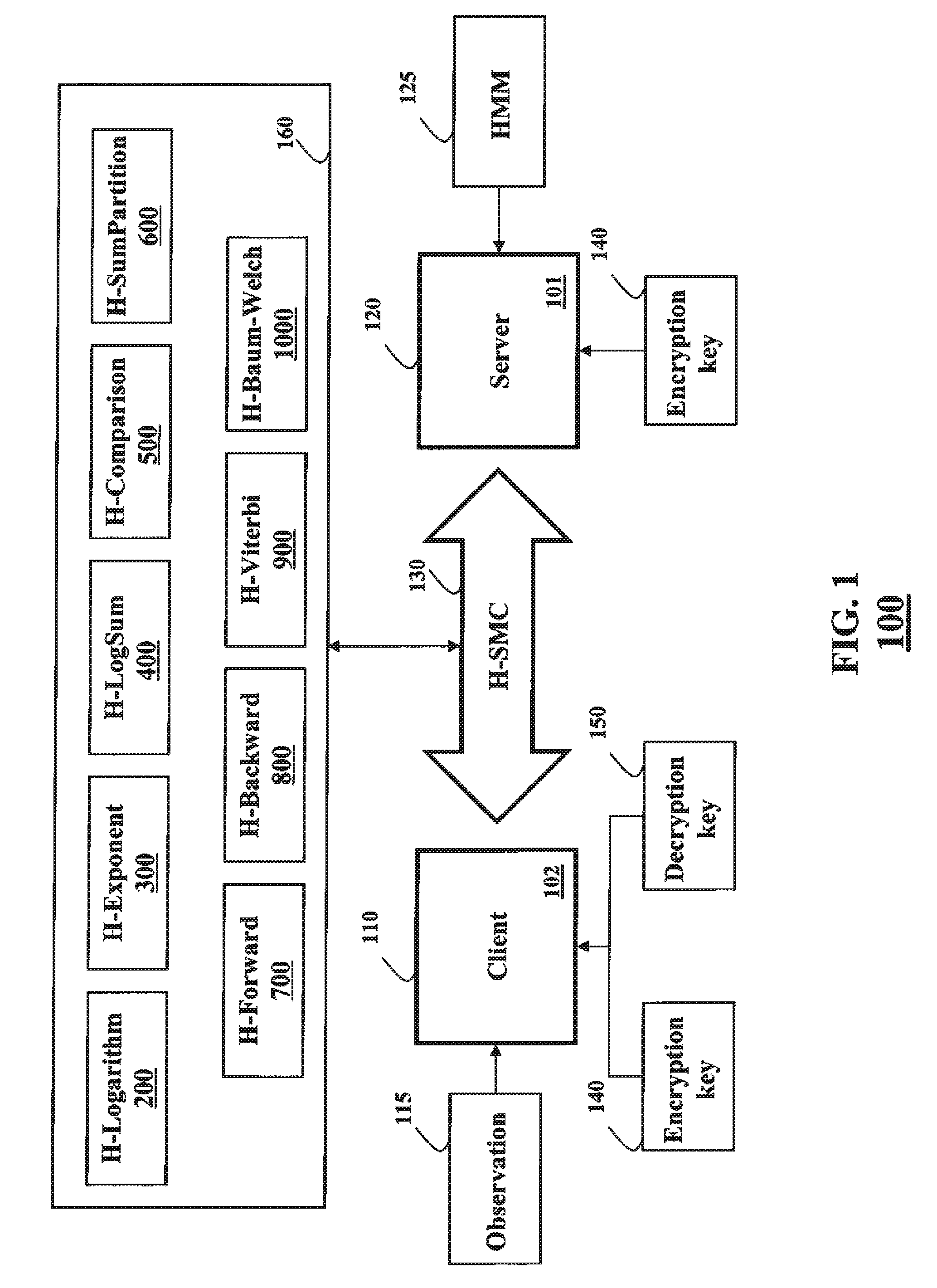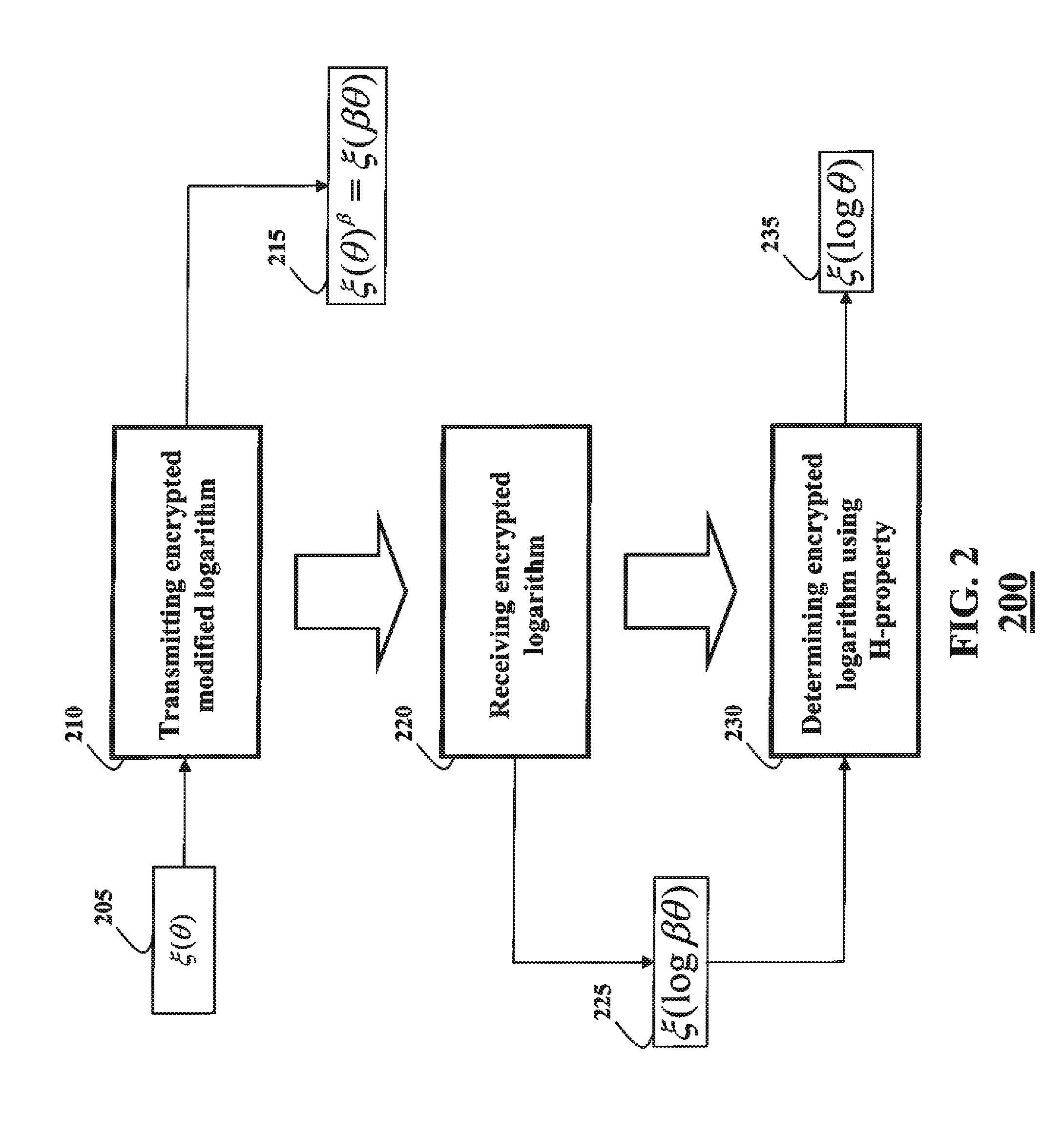Privacy-Preserving Probabilistic Inference Based on Hidden Markov Models
a probabilistic inference and privacy-preserving technology, applied in the field of probabilistic inference based on hidden markov models, can solve problems such as unsuitable methods
- Summary
- Abstract
- Description
- Claims
- Application Information
AI Technical Summary
Benefits of technology
Problems solved by technology
Method used
Image
Examples
Embodiment Construction
[0067]System Overview
[0068]FIG. 1 shows a system 100 employing some embodiments of the invention. A client 110 stores an observation sequence 115. A server 120 stores a hidden Markov model (HMM) 125. The client also stores a decryption key 150 and an encryption key 140 for an additively homomorphic cryptosystem. The server has only the encryption key 140.
[0069]The client and the server perform a secure multiparty computation (SMC) using at least one property of additive homomorphism, i.e., an H-SMC, to determine a secure probabilistic inference of the observation sequence with respect to the HMM. As referred herein, a prefix “H-” indicates that a communication, a computation, or a method is performed in a secure domain using at least one property of additive homomorphism. For example, the H-SMC 130 can use at least one H-method 160, as described in more details below. The client and the server can be implemented using a processor, such as a processor 101 and / or a processor 102.
[0070...
PUM
 Login to View More
Login to View More Abstract
Description
Claims
Application Information
 Login to View More
Login to View More - R&D
- Intellectual Property
- Life Sciences
- Materials
- Tech Scout
- Unparalleled Data Quality
- Higher Quality Content
- 60% Fewer Hallucinations
Browse by: Latest US Patents, China's latest patents, Technical Efficacy Thesaurus, Application Domain, Technology Topic, Popular Technical Reports.
© 2025 PatSnap. All rights reserved.Legal|Privacy policy|Modern Slavery Act Transparency Statement|Sitemap|About US| Contact US: help@patsnap.com



